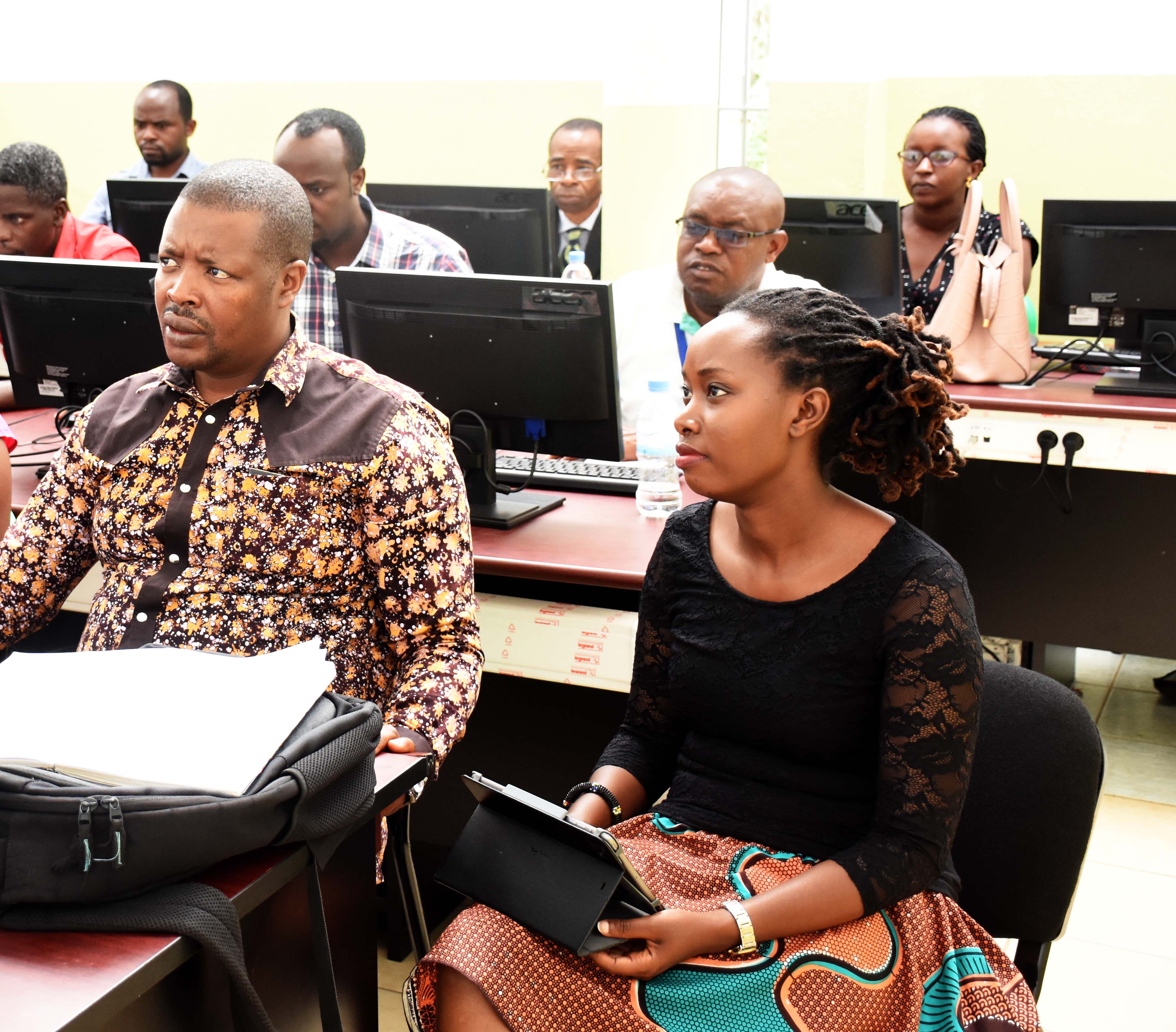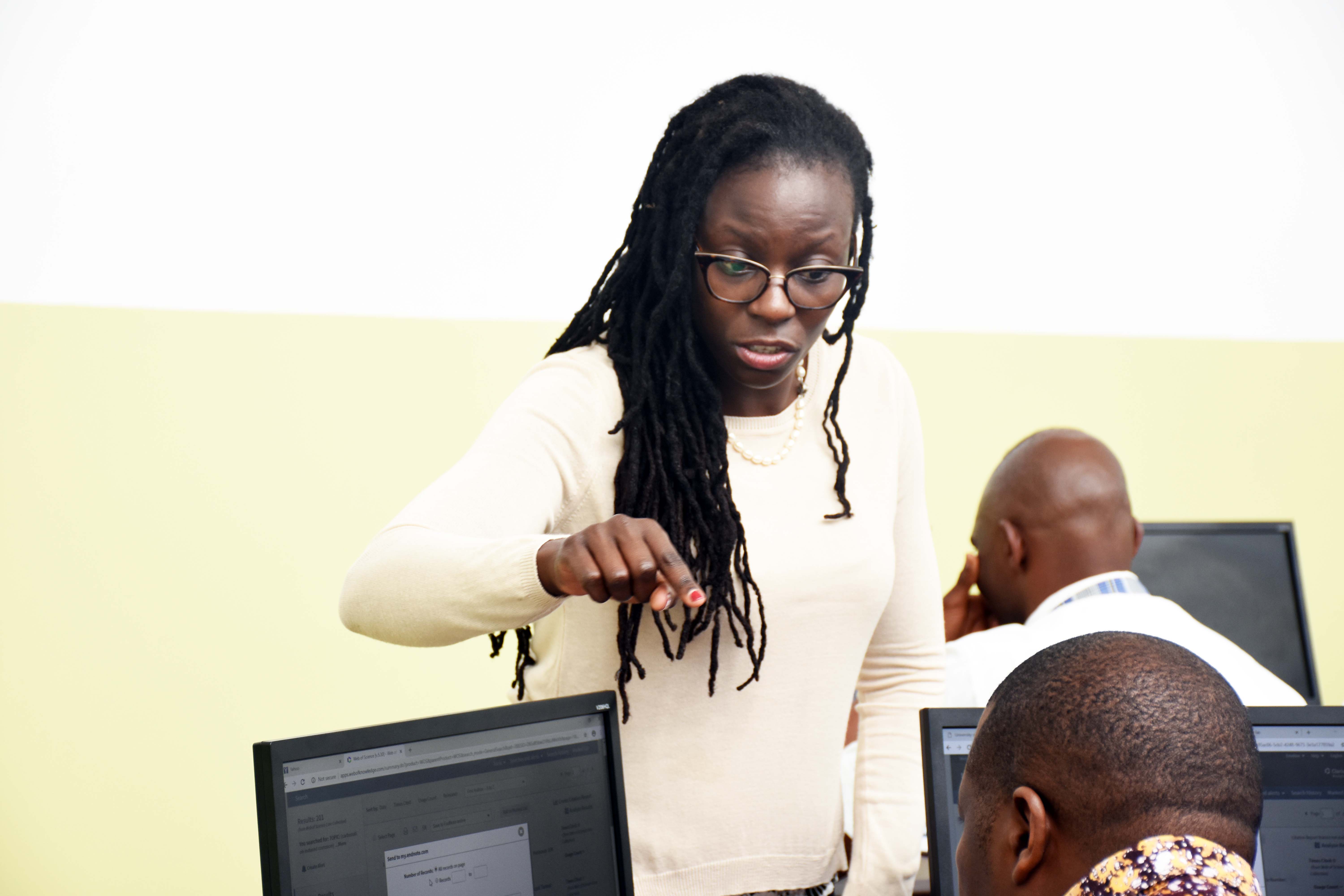Over the last 4 years, the University of Rwanda has made tremendous efforts to improve the level of research and staff capacity with regard to research. In the same line, a two-day training was organized for UR lecturers to equip them with pertinent skills on how they can use the web of science, which is a high impact data solution, to improve the quality of research. The training was organized in collaboration with Clarivate Analytics under the support of UR-Sweden programme.
According to Olive Niyomubyeyi one of the participants, the training on the use of web of science will enable her to tap into existing publication on the web of science platform to improve her own work. The platform also incorporates a variety of credible publishing houses and other research funding agencies that can support academics in their research activities.
Ms Niyomubyeyi (1st right) and other training participants
“Being able to use all the features available in the platform would be massive for academics and researchers at large” said Niyomubyeyi who is conducting her PhD studies at Lund University in Sweden. For research to thrive, she called for alleviating research barriers like inadequate environment for researchers, improved academic workload that enable them to invest more time in research as well as providing infrastructure like modern labs and reliable internet connectivity.
The training was facilitated by Joy Owango who is in charge of Research Capacity and Collaboration for Clarivate Analytics for East Africa-West Africa. On top of availing techniques to improve the quality of research, Owango noted that the solution shared on the platform make it easier for lecturers to help their students on how to produce better thesis even eases the marking instead of criticizing poor papers that are coming out. She revealed that thanks to UR, the research coming out in Rwanda is influential and encouraged academics and researchers in general to ensure that they have access to proper resources.
Ms Owango from Clarivate Analytics during the training
“Lecturers and researchers who do not have access to proper resources to support students or their papers are doing themselves and also their students a disservice” Owango said.
In the course of the training lecturers were also guided on how they can mitigate predatory publishing so that they can produce better thesis while translating available information to support the students.
The use of web of science is one of the techniques to ensure that UR ecosystem is strong and healthy enough to attract students coming to the university and top researchers to work within the University. In so doing, the move ends up having a ripple effect leading to the visibility of the University
UR continues to invest in human capacity including trainings of students and staff and availing related infrastructure to enable researchers and academics to build a research culture. The University has indeed invested in the big data which is the foundation that holds the whole system together to create a health research ecosystem that can be used to improve the quality of research.
By Darius Murangwa
Communications Officer

